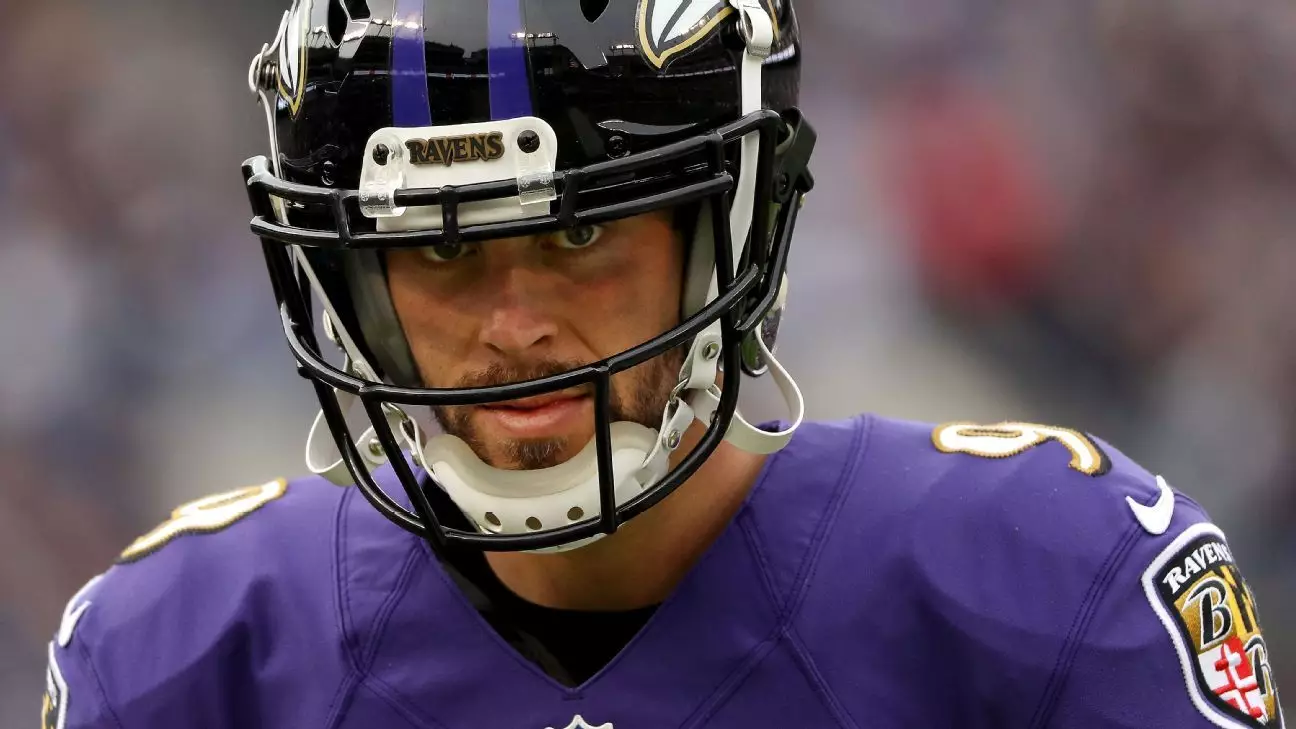The recent revelations surrounding Baltimore Ravens kicker Justin Tucker have stirred considerable discussion and concern, highlighting the complexities of accountability in the realm of professional sports. As reports emerge detailing allegations from 16 different therapists across various spas, prominent questions arise regarding the broader implications for Tucker, the NFL, and how such misconduct is addressed in sports culture.
The Baltimore Banner unveiled troubling accusations against Tucker, reporting claims of sexually inappropriate behavior during massage sessions from 2012 to 2016—his initial years in the league. The accusers recounted experiences that range from discomforting eye contact to allegations of overt sexual acts, raising significant ethical and personal conduct questions. Each allegation paints a picture of a recurring theme—unprofessionalism and a breach of boundaries that are especially critical in the therapeutic space.
This progression from six to now sixteen accusers emphasizes a chilling reality faced by many within these therapeutic professions. How often do such allegations go unvoiced due to fear of retaliation or lack of support? The environment within which these therapists operated, as revealed by some who claimed they did not report misconduct for fear of losing their jobs, signals a profound systemic issue.
As NFL Commissioner Roger Goodell addressed these allegations at a news conference, the gravity of the situation became apparent. His comment that such misconduct “are obviously serious issues” reflects an acknowledgment of the severity of the claims against Tucker. However, their enforcement often appears inconsistent across different cases, as seen in previous instances with other players.
Tucker’s case has added pressure on the NFL to uphold its personal conduct policy, designed to protect individuals within the league and outside of it. Critics may argue that the league has historically struggled to balance protecting its own athletes with holding them accountable for their actions off the field. This precarious dance raises the question: will Tucker face adequate scrutiny, or will he escape repercussions due to his status as a celebrated player?
Tucker’s Defense and Public Reaction
In light of these mounting accusations, Tucker has firmly denied all wrongdoing, labeling the allegations as “unequivocally false.” His defense, characterized by the phrase “desperate tabloid fodder,” aims to discredit the narrative being shaped by media outlets. The nuances of his response, wherein he references his social media as a primary defense, illustrate an attempt to control the narrative.
Moreover, Tucker’s legal team has presented declarations from spa owners denying allegations of misconduct and claiming no formal complaints were lodged against him, attempting to reinforce the narrative that these allegations are unfounded. While it is commonplace for accused parties to deny allegations, the response feels notably performative against the growing backdrop of societal calls for accountability and transparency regarding sexual harassment and misconduct.
Public reaction to these developments has been polarized. Supporters of Tucker remain steadfast in his credibility, celebrating his achievements as one of the NFL’s best kickers. However, voices in the media and the broader public sphere echo the growing sentiment that abuse of power and position, particularly within a high-stakes environment like the NFL, must not be overlooked.
Tucker’s situation encapsulates a significant challenge in professional sports—the intersection of celebrity and accountability. As allegations of sexual misconduct emerge, the sports community is forced to confront uncomfortable realities about culture, power dynamics, and the protection of individuals who may fall victim to high-profile figures.
Ultimately, these incidents underline an urgent need for improved practices within sports organizations to address allegations seriously and establish proper channels for reporting misconduct. It’s a wake-up call not just for the NFL but for all professional sports leagues as they navigate increasingly socially aware environments where their athletes are held to higher standards than ever before.
In navigating the road ahead, Justin Tucker, and by extension the NFL, must recognize that these allegations, while denied, represent a moment of reckoning that could reshape the conduct standards of the league and its players. The implications of societal scrutiny can no longer be brushed aside—they demand a cohesive effort to cultivate environments of respect and integrity in sports.


Leave a Reply